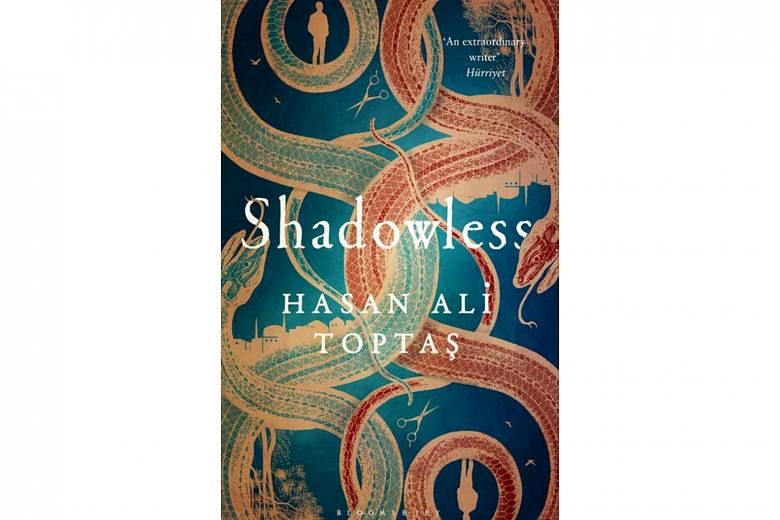Strands of reality telling of similar yet separate worlds come together to form the dream-like sequence that is Shadowless, which reels its reader into its characters' displacement or, at least, their sense of disorientation.
The idea of being "lost" is presented in a literal sense.
The novel describes a far-flung Anatolian village where a muhtar - its leader - has just been re- elected to his 16th year in power. The evening after his re-election, he is woken by his wife to learn that a woman named Guvercin has vanished from their village.
This reminds him of the day he first came to power. He had awoken to find that the barber Nuri had gone missing, leaving behind a wife and three children, in a move that stirred fearin the community. So he begins his search for the missing beauty.
-
FICTION
-
 SHADOWLESS
SHADOWLESSBy Hasan Ali Toptas, translated by Maureen Freely and John Angliss Bloomsbury/ Hardcover/305 pages/$38.95/ Books Kinokuniya/4/5 stars
In a nameless town elsewhere, a barber clicks his scissors, eyes glinting as he sizes up his customers. But he, like everyone else around him, does not recall why or how he arrived at the shop.
Jumping between flashbacks and reality, interspersed with seemingly unrelated scenes at the barber's, the novel leaves the reader wondering which version of the narrative is the truth.
But whether one is real and the other, a tapestry of memories, is anyone's guess. As is the identity of the narrator, who waits for his haircut even as the other patrons, and the barber himself, leave the shop.
The beauty of the book lies in its offering of Easter eggs for a social commentary, although its other details may as easily be interpreted as an introspection of the human condition.
Should onefocus on the disappearing, damaged villagers, who seem to be a nod to those who have suffered or vanished over the years of conflict Turkey has faced? Or should the spotlight be on the manner in which each character reacts to the unexpected in hisenvironment and what this says about human nature?
While there are those who liken Toptas to an "Oriental Kafka", referring to the German-language writer, the horrors in Shadowless are less grotesque - a la Kafka's The Metamorphosis - than they are poetic.
Think of a man crumbling to defeat under the voices of shadows calling to him from within; or another who shrouds his demise in applause from a crowd.
Like the entranced narrator, who watches as a barber clips his way through nameless customers, the reader is a spectator to the surreal performance of their stories and perhaps just as lost as they are.
If you like this, read: Dance Dance Dance by Haruki Murakami (Vintage Publishing, 2002, $20.28, Books Kinokuniya), where a man facing an early mid- life crisis searches for a woman he once shared a hotel room with.


